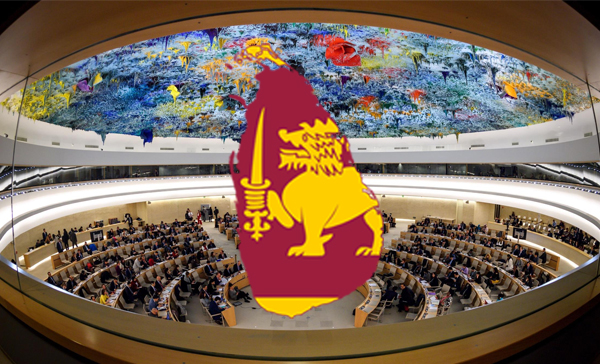The 49th regular session of the United Nations Human Rights Council (UNHRC) began yesterday (28 February) with a report on Sri Lanka due on 3 March (Thursday).
Foreign Minister Prof. G.L. Peiris is due to meet United Nations High Commissioner for Human Rights (UNHCHR) Michelle Bachelet during his visit to Geneva, Switzerland at tomorrow’s (2 March) session. He is due to make his first speech at the session today (1 March) and his final remarks on Friday (4 March).
In her written report about Sri Lanka, Bachelet has made several recommendations, including that a moratorium be imposed on the use of the Prevention of Terrorism (Temporary Provisions) Act No. 48 of 1979 until it is replaced by legislation that fully complies with international human rights norms.
She has highlighted the need for broad and inclusive consultations for the drafting of a new Constitution and the need to publish the findings of the Presidential Commission of Inquiry (PCOI) into the 2019 Easter Sunday bombings in order to “ensure transparency for victims and to pursue further independent investigations into the involvement of any other State or non State actors”. Colombo Archbishop His Eminence Malcolm Cardinal Ranjith is presently at the Vatican, where he hopes to raise the issue of justice for the victims of the Easter Sunday terror attacks.
Furthermore, Bachelet has called on the Government of Sri Lanka (GoSL) to avoid relying on the military for the purpose of civilian affairs, and to ensure the independence of the Attorney General’s (AG) Department.
With regard to accountability measures concerning the three decades long civil war, Bachelet has urged the GoSL to take a comprehensive approach to determine the fate and whereabouts of all the disappeared, including immediately opening military archives relevant to cases of enforced disappearance, independently investigating all those suspected of criminal responsibility for enforced disappearances, and providing comprehensive reparation to the families of the disappeared.
She has called upon the UNHRC and its Member States to “co-operate with victims and their representatives to investigate and prosecute international crimes committed by all parties in Sri Lanka through judicial proceedings in domestic jurisdictions, including under accepted principles of extraterritorial or universal jurisdictions and to continue to explore possible targeted sanctions against credibly alleged perpetrators of grave human rights violations and abuses”.
In March 2021, the UNHRC passed resolution 46/1, which recognises the importance of preserving evidence relating to violations of human rights in Sri Lanka in order to advance accountability, and as such, a call has been made to implement an “evidence preserving” mechanism in the country. It was adopted on 23 March at the UNHRC with 22 votes in favour of it and 11 votes in opposition while 14 Member States abstained from voting.
In her oral update this month, Bachelet has called upon the UNHRC and its Member States to co-operate with the UNHCHR office in its discharge of accountability-related work under resolution 46/1 and to provide it with the adequate human and financial resources to enable it to effectively deliver the full mandate given under the resolution.


